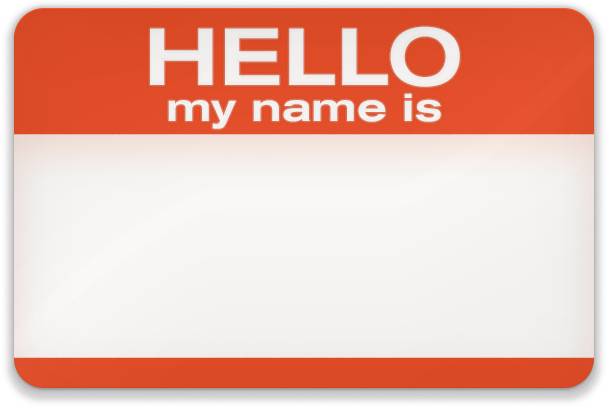 Klem, Mull, Mays, Toq.
Klem, Mull, Mays, Toq.
My first book, The Hole In the World, featured characters whose names were “familiaresque.” My goal was to separate them entirely from the real world—for reasons I hoped would become clear as the story progressed. But I didn’t want the names to be so exotic that they pushed the reader out of the story, so I created names that were short (usually one syllable) and memorable. Also, the names had to evoke some aspect of their respective personalities.
Just before I wrote On the Loop, I read a book—I forget the title—that featured two lead characters with very similar names. Of course I kept getting the characters confused, and I wondered how the author had crafted themselves into that situation when it was so easily avoided.
Since my first book my goals with character names have changed. I write—so far—near-future science fiction. That means I want names that are recognizable, international, and perhaps most important of all, distinguishable from each other! And because showing is usually better than telling, here are some (not from the same book):
Ellie Lambrou
Zara Farhad
Grace Raycroft
Xiang Jian
Foster Daws
Dee Khalaji
Thi Thawda
Quinn Wittig
Mille Friis
Jaydee Dayton
If you’re a word nerd maybe you already see some of the key identifying characteristics. If not, here’s what we’re looking at:
- Alliteration: the repetition of the same consonant sound either at the beginning or into he middle of words, e.g. “perfect pitch,” or “fragrance of regret.”
- Assonance: the repetition of a vowel sound either at the beginning or in the middle of words, e.g. “gliding highly in the night.”
- Consonance: the same consonant is repeated at least twice in short succession, e.g. “death and breath.”
Naturally I don’t want my character names to call too much attention to themselves on their own. But I gravitate like hell toward a good methodology, and I’ve found one that works for me. Names can do more than identify the players on your stage. They can express traits about each person, including their culture, and they can also have their own poetic rhythm that makes them sing beyond their syllables. That’s a quality called prosody (one of my favorite words).
So what are my personal rules for names? Here are the basic things I keep in mind:
- Don’t make names too “crazy”
- Avoid biblical names
- Distribute names around the alphabet (unless there’s a reason to make them similar/the same)
- Use poetic devices to make names memorable
- Base name etymology on a character’s attributes
Hopefully this approach serves my stories, beyond making the naming process more fun and interesting for the author. If it works as planned no reader will notice—and those who do may get a kick out of some of the names they’ve come across.
Finally, I’ll leave you with a couple links.
- Fantasy Name Generators is such an amazing resource for exploring name ideas, mainly because it offers randomized names from so many places and cultures.
- Dan Koboldt has a great post called How to Name Characters in Fantasy that’s definitely worth checking out, whether you’re a writer, or just interested in the craft.